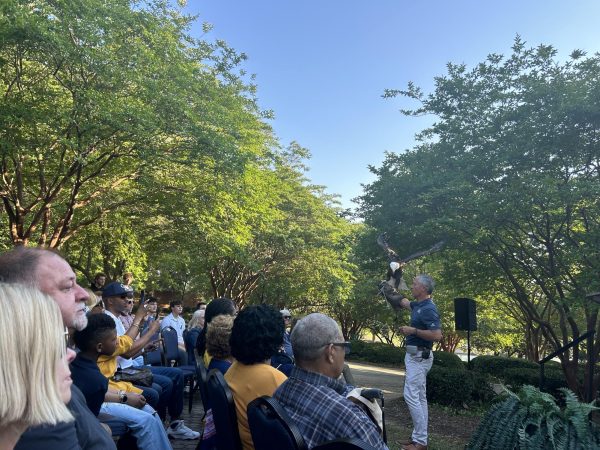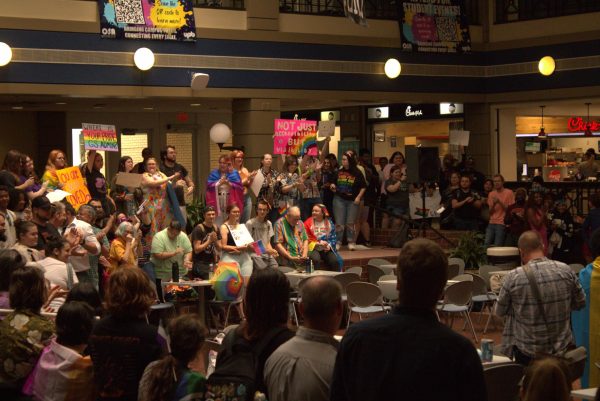Georgia Southern University’s History Department hosts panel on free speech
November 21, 2019
STATESBORO — Georgia Southern University’s History Department hosted a panel discussion called Free Speech: In the Constitution and on Campus on Wednesday, Nov. 20. in the Arts Building
This panel was scheduled after past events on campus have sparked questions about what kind of speech and expressions are protected. This was the department’s third annual panel discussion, but this year they aimed their focus on the book burning of Jenine Capo Crucet’s novel, Make Your Home Among Strangers.
The panel of speakers were lead by History Professor Johnathan O’Neill and University Executive Counsel Maura Copeland. O’Neill and Copeland discussed what hate speech is and it’s terminology, as well as current and past laws.
O’Neill kicked off the panel with a lecture over questionable wording in political speech, exceptions that may come with it, symbolic speech and hate speech.
Copeland discussed current and past laws regarding free speech, as well as covering the constitution, federal constitutions and the Georgia constitution.
Copeland also gave examples of past Supreme Court cases that informed the use of ill-formed words, as well as policies from the Board of Regents and GS.
“Students, faculty, and staff are free to express their views individually or in groups, orally or by signs on all parts of the campus,” Copeland said of GS’s policy for freedom of expression. “So as long as you are not disrupting or breaking other policies or laws, you are allowed to express your opinion on campus.”
Once the panel wrapped up their lectures the floor was open for questions from students and faculty who attended.
One question asked by a student came from Jessica Forsee, a history major.
“How does the university protect symbolic speech,” Forsee asked?
“With typically using the words free expression and not free speech. The same rules apply with symbolic expression, so things that are signs or acts like… it doesn’t have to be verbal speech. It can be a symbolic expression and it is all under those same policies.”
Forsee was slightly disappointed with the answer since she just reiterated that it did fall under freedom of expression even though she feels that the actual language used on file falls under freedom of speech. Even then, Forsee was pleased that the department held the panel discussion because it was important and necessary for the discourse.
The overall goal for this panel discussion was to provide students and faculty with a better understanding of the events that took place as well as the reasoning behind the actions the university took following the events.
O’Neill said that students and administration that were present are in a position of continuing to understand and explain the events that took place and the actions that followed.
“There are all kinds of reasons against this, but people also need to know why there needs to be protection for thoughts that you hate or disagree with,” O’Neill said.
Savannah King, The George-Anne Contributor, gaeditor@georgiasouthern.edu














